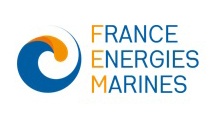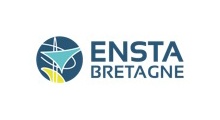
MONAMOOR
Modelling and monitoring of polyamide mooring lines
Duration: 42 months (2020 - 2024)
Context
Mooring systems using polyamide ropes are a promising technical and economic solution for future floating wind farms. Polyamide lines can be used to reduce maximum tensions, absorb the loads transmitted to the float and reduce the footprint of the mooring on the ground. As the long-term behaviour of this type of synthetic fibre is not well known, its qualification for a period corresponding to that of the operation of a wind farm (20 to 25 years) is a major challenge.
Objective
To develop tools for modelling the mechanical behaviour of nylon fibre lines and appropriate long-term monitoring instruments, based on an in-depth understanding of degradation mechanisms
MAIN ACHIEVEMENTS
- Improvement and validation of a nylon behaviour law established during a previous project (POLYAMOOR from 2017 to 2020)
- Long-term laboratory creep tests
- Fatigue tests, X-ray tomography analysis of ropes, use of the self-heating method
- Development of a 3D mesoscale finite element model of a subrope
- Raising the level of technological maturity of various innovative sensors: elongation (wire, ultrasound, fibre optics), pressure, acoustic emission
- Design, assembly and deployment at sea of a demonstrator capable, on a reduced scale, of representing the forces generated by a floating wind turbine
- Sea trials to validate the behaviour law and some of the sensors developed
CONCLUSION
POLYAMOOR and then MONAMOOR have led to significant advances in innovative mooring solutions. They confirmed that the lifespan of polyamide is compatible with that of a commercial farm. Robust modelling tools for the short- and long-term behaviour and fatigue of synthetic lines have been developed. A modelling law and innovative sensors were validated during sea trials.
Resources
Partners and funding
This project was led by Ifremer and France Energies Marines.














The total project budget was €2,000K.
This project received funding from France Energies Marines and its members and partners, as well as French State funding managed by the National Research Agency under the France 2030 investment plan (ANR-10-IEED-06-34). It also benefited from the financial support of Bretagne, Pays de la Loire and SUD Provence-Alpes-Côte d’azur regions.

Photo credit: Onvictori0 / AdobeStock